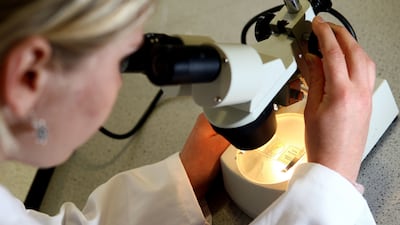More must be done to tackle smoking and obesity rates among people from ethnic minority groups to prevent a surge in preventable cancer cases, a charity has warned.
Cancer Research UK said evidence has suggested the proportion of smokers and obesity rates could increase among people from black, Asian or mixed ethnic backgrounds.
If this happens, then there could be a rise in cancers linked to lifestyle factors.
The researchers said that this, combined with reports that people from ethnic minority backgrounds have worse experiences of cancer care and lower survival rates for some cancer types, is “worrying”.
The comments come after a report highlighted how rates of cancer in England vary between people from different ethnic backgrounds.
Findings from the report, published in the British Journal of Cancer, include:
– White people in England are more than twice as likely to get some types of cancer, including melanoma skin cancer, and oesophageal, bladder and lung cancers compared with people from black, Asian or mixed ethnic backgrounds.
– Black people are more likely to get stomach and liver cancers.
– Black people are almost three times more likely than white people to get myeloma and black men are almost twice as likely to get prostate cancer than white men.
– Some stomach cancers were also found to be higher among black people compared to white people.
– Asian people are more likely to get liver cancers.
Experts from the research centre analysed data from NHS Digital on more than three million cancer diagnoses between 2013 and 2017.
“People of non-white minority ethnicity in England generally have lower cancer risk than the white population, though there are a number of notable exceptions,” they said.
The research centre said white people were more likely than most minority ethnic groups to smoke or be overweight or obese, and these are the two largest risk factors in developing cancer.
This could help to explain why white people are more likely to get some types of cancer than other ethnic groups, the charity said.
It said that there was some evidence suggesting smoking and obesity rates in people from black, Asian or mixed ethnic backgrounds could become similar to those in white people in future.
This could see a rise in cancers linked to smoking and obesity.
“To date, this is the most reliable and highest quality study on cancer incidence by ethnicity in England, which shows us there are disparities in cancer rates across different ethnicities," said Dr Katrina Brown, a study author and Cancer Research UK statistician:
“Someone’s risk of developing cancer is based on many factors, including age, genetics and exposure to preventable risk factors. Around 40 per cent of cancer cases in the UK could be prevented.
“The cancer incidence we see today is partly the product of smoking and obesity in decades past.
"If we don’t tackle these risk factors today, we could see cancer rates rise in future for people from ethnic minority groups.”
Michelle Mitchell, chief executive at Cancer Research UK, said: “It’s clear addressing cancer inequalities must be central to [UK Health Secretary] Sajid Javid’s new 10-year cancer plan and include being bolder on cancer prevention – tightening tobacco control and implementing, not U-turning, on obesity policy."
“More research is needed to understand the challenges faced by different ethnic groups and how the cancer journey differs for people.
“We already know that the burden of cancer weighs heaviest on the most deprived in the UK.
"Equitable access to services, including access to stop smoking and weight-management services, as well as early diagnosis and cancer treatment, is essential to improve cancer survival.
“I believe everyone must have access to the care they need, so that cancer survival can be improved for everyone.”
A Department for Health and Social Care representative said: “The government is committed to levelling up health outcomes across the UK, which is why we have declared a national war on cancer.
“We are developing a 10-year cancer plan, informed by a call for evidence, to set out how we will lead the world in cancer care, including tackling disparities and inequalities, and speeding up diagnosis to improve survival rates.”















